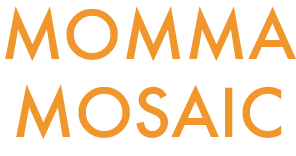When it is darkest we can see the stars
From the time I was about twelve or thirteen years old, I wanted to be a psychologist. When I was about ten, a close family friend killed herself and it was one of the most profound “Whys” I would ever set out to try to answer. I became consumed by why people do what they do. In fact, my college essay was about this family friend and how her life and death changed my life.
After college, while living in Baltimore, I worked as a caseworker for the city. My first case was with a young girl, aged twelve, who was living with her mother and her mother’s abusive boyfriend. She had experienced a tremendous amount of pain and trauma in her twelve years and I was assigned to work with her twice a week for several months. Every time I met with her, it felt like a privilege. To have access to this person’s life, thoughts and feelings. She trusted me and allowed me in to her world, which despite it’s difficulties was very much still the life of a twelve-year-old girl on the verge of young womanhood. It’s a precious and fragile time.
I think now, of my daughter, who is herself on the cusp of young womanhood at almost twelve years old. I feel that same privilege with her. To be granted access to this particular time in a girl’s life is quite something. In my work with moms, it is often discovered that ones deepest wounds were formed in childhood. Layers and layers of buffers between the mom today and the girl she was. Adolescence reminds me of matrescence, a term created by a reproductive psychiatrist to explain the massive physiological, psychological and emotional changes that occur in the first year of motherhood. It is a sacred threshold and if supported and nourished during this time, past traumas and wounds can actually be reset. If left unattended, they can rise to the surface again. We carry these wounds within us, sometimes without even realizing it.
I remember back to my time with the twelve year old in Baltimore. She would take me on walks around her neighborhood and talk and talk and talk. So much of my time with her was spent listening — without assumption, without judgement. Just there, walking with her, often into the evening, and listening. She later told me that our time together helped her because it allowed her to say things out loud and I didn’t think she was weird or disgusting. She didn’t have anyone to talk to about her life. At least no one who understood. I would often tell her that the way we feel can never be wrong. It is ours and no one can take that away or invalidate it. But that it also doesn’t have to define us. You are not your pain. Inevitably she would transition into talking about a crush she had or her new favorite stuffed animal and that remaining innocence of adolescence would be her salvation from the nightmare at home.
Now, over twenty-five years later, I realize she may be a mom herself. I wonder how she is and reminisce about how I said to her the same things I often say to moms today. How no one can be wrong to feel the way you do. You may feel broken now but you’re more beautiful and resilient than you know and that little girl is waiting to come out and shine. We each carry hurt within us. Some more than others. Our struggles may haunt us our whole lives, like my dear family friend, but hopefully they don’t have to.
The sun set a little earlier tonight. I think about that twelve-year-old within all of us and let the profundity of it all wash over me as the New York City sky melts into the night and my children return home to me. I am reminded of the great quote, “When it is darkest we can see the stars." And I am filled with such gratitude for my path, for the opportunity to work with astounding women doing the work that I love. And still after all these years, asking why and listening for the unfolding answers with my inner twelve-year-old leading the way.

